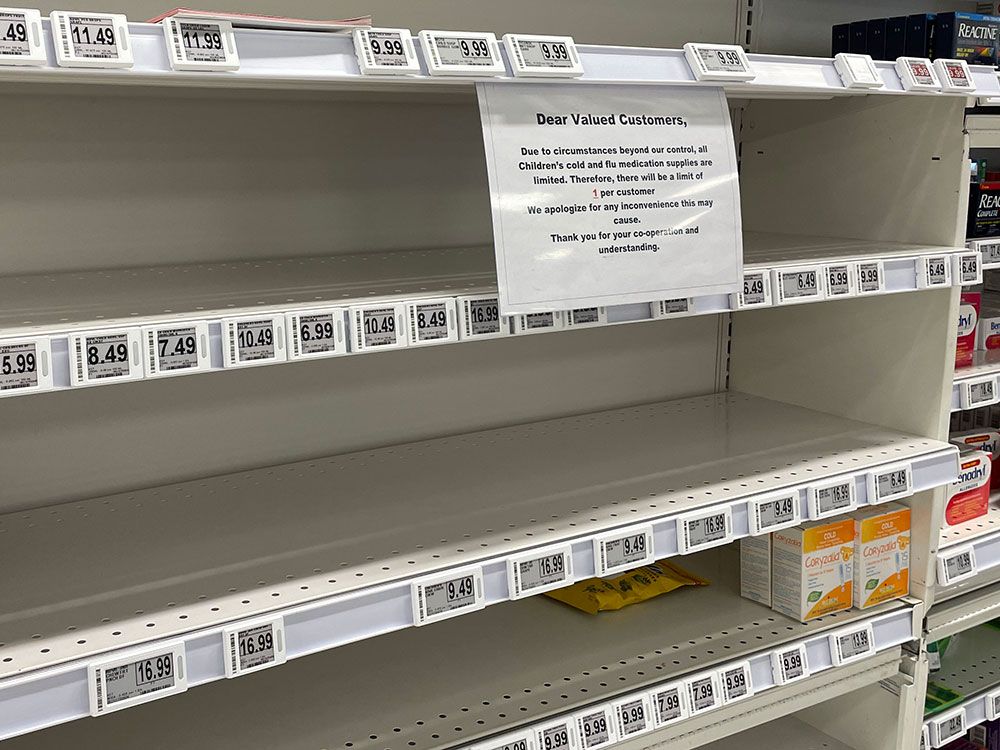Tesla leads with almost US$12 billion in paper profits for shorts
Author of the article:
Bloomberg News
Subrat Patnaik
Publishing date:
Dec 13, 2022 • 22 hours ago • 3 minute read
Join the conversation
Brand new Tesla cars sit in a parking lot at the Tesla Inc. factory in Fremont, California. Photo by Justin Sullivan/Getty Images files Short sellers have reaped almost US$50 billion of gains this year from betting against some of the biggest technology companies, and some bears see further profits in 2023.
Advertisement 2 This advertisement has not loaded yet, but your article continues below.
Even after this year’s 26 per cent slump in the Nasdaq 100 index, many of the stocks are still expensive relative to their estimated sales or earnings, skeptics say, a sign that some of the froth from a multiyear bull market still remains to be blown away.
FP Investor By clicking on the sign up button you consent to receive the above newsletter from Postmedia Network Inc. You may unsubscribe any time by clicking on the unsubscribe link at the bottom of our emails. Postmedia Network Inc. | 365 Bloor Street East, Toronto, Ontario, M4W 3L4 | 416-383-2300
The 10 most-shorted companies have delivered US$49.2 billion in combined mark-to-market gains for bears through Friday, according to data-analytics firm S3 Partners LLC. Tesla Inc. leads with almost US$12 billion in paper profits for shorts, followed by Amazon.com Inc. and Meta Platforms Inc. The top 10 also includes Apple Inc. and Microsoft Corp.
“The reason we are so attracted to the technology sector is because there are still a ridiculous amount of companies out there that are trading at 10, 15, 20 times price to sales,” Brad Lamensdorf, a manager of the AdvisorShares Ranger Equity Bear ETF, said.
Advertisement 3 This advertisement has not loaded yet, but your article continues below.
Such multiples are “absurd,” he said, adding “the odds of that position being profitable over time for an investor is so low that they are a great pool to fish from.”
Short sellers — who borrow shares and sell them, hoping to buy them back at a lower price to profit from the difference — struggled during the years-long bull market, when high valuations didn’t seem to matter.
That changed this year: Soaring inflation prompted a series of interest rate increases by the United States Federal Reserve, causing investors to flee once-popular growth and tech stocks.
Tesla is a prime example: The electric-car company was the most shorted stock in 2020 and 2021, but by the end of those years, short sellers were sitting on about US$35 billion and US$10 billion of paper losses, respectively, as the shares rallied.
Advertisement 4 This advertisement has not loaded yet, but your article continues below.
The stock topped out late in 2021 at about 18 times sales, and it’s lost half its value this year, when it was again the most shorted stock and the most profitable one for the bears.
Another favourite of the shorts, used-car retailer Carvana Co., has tumbled 98 per cent this year. Short sellers have US$4.3 billion in mark-to-market profits on bets against the stock, according to S3.
Recommended from Editorial Investors withdraw record levels of bitcoin from crypto exchanges 12 questions investors should ask about companies they’re looking at that have yet to turn a profit Shopify stock seen carrying weight of Canadian tech stocks curse into 2023 Representatives of Apple and Carvana didn’t have any immediate comment on the short interest in their shares, while Microsoft declined to comment. Tesla, Meta and Amazon weren’t immediately available to comment.
This advertisement has not loaded yet, but your article continues below.
Article content Many of the most-shorted stocks also were among the most-owned stocks by individual investors, meaning the mom-and-pop set took a big hit in the bear market.
Investment portfolios belonging to retail traders suffered a US$350-billion blow this year, according to data compiled by Vanda Research Ltd. The list is topped by Tesla, which accounts for about 10 per cent of the average self-directed global retail trader’s portfolio, according to the firm.
Even after this year’s selloff, the Nasdaq 100 trades at 21 times forward earnings, slightly above its 10-year average.
It’s likely “that investors will make money shorting tech again in 2023,” Matt Maley, chief market strategist at Miller Tabak + Co. LLC, said. “History tells us that bear markets for the tech group do not end until the biggest names become at least somewhat cheap.”
Bloomberg
_____________________________________________________________
If you liked this story, sign up for more in the FP Investor newsletter.
_____________________________________________________________
